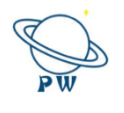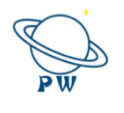Satellite Propulsion System Market Eyeing Remarkable Growth due to Increased Satellite Deployment
Research Reports
Sep 08, 2023
Satellite Propulsion System Market Overview
Satellite Propulsion System market had a valuation of USD 1.5 Billion in 2022, and it is anticipated to expand significantly, reaching USD 8.98 Billion by 2032. This growth represents a robust compound annual growth rate (CAGR) of 22.00% throughout the forecast period from 2023 to 2032, when compared to its 2023 value of USD 1.83 Billion.
Drivers
Increasing Adoption of Small sats to Boost Market Growth
Due to their low cost per unit and light weight, small sats are increasingly being used for commercial purposes, which help to drive the expansion of satellite propulsion system market. The use of satellites more often in the defense industry would also help this business expand. Established companies, along with small and medium-sized businesses, have been attracted to invest in small sats as a result of technological improvement in the form of miniaturization of components and related software, which has supported market growth.
Free Sample Report @https://www.marketresearchfuture.com/sample_request/4608
Opportunities
Increased Satellite Deployment to offer Robust Opportunities
More satellites were required to be sent into orbit due to the rising demand for satellite-based services including communication, Earth observation, navigation, and remote sensing. Due to the necessity of propulsion systems for satellite maneuverability, orbital modifications, and station-keeping, this demand was stimulating the market for satellite propulsion systems.
Restraints and Challenges
Insufficient Thrust Generation to act as Market Restraint
The insufficient thrust generation, lack of awareness, environmental concerns, and technological complexity may act as market restraints over the forecast period.
Full Report @https://www.marketresearchfuture.com/reports/satellite-propulsion-system-market-4608
Market Segmentation
The global satellite propulsion system market is bifurcated into propulsion type.
By propulsion type, cold gas propulsion will lead the market over the forecast period. The principle behind cold gas propulsion is to expand the gas to generate thrust through the nozzle. It enables the propellant to go from a tank for storing propellant to a converging/diverging nozzle, where it expands into a large area of empty space. In comparison to chemical or electric propulsion systems, cold gas propulsion systems have a lower specific impulse of about tens to few hundred seconds, resting on propellant atomic mass.
COVID-19 Analysis
The pandemic slowed down the industry’s expansion and development. The market’s supply chain was disrupted, which limited the supply of raw materials and negatively impacted the satellite propulsion system market’s worldwide economy. Government-imposed foreign policies have a direct or indirect impact on how the sector develops. Manufacturers and retailers both have been developing ways to accelerate the market’s expansion and development. Despite these obstacles, the market would steadily catch up in terms of economic standards. The market is anticipated to increase significantly over the projected period.
Regional Analysis
North America to Head Satellite Propulsion System Market
This market will be dominated by North America. The highest CAGR will be produced by this area. This is the fault of well-known space organizations like NASA. As a result of the presence of major satellite drive system suppliers like Aerojet Rocketdyne & Boeing in this area, the local market is expanding. The main factor driving market expansion in this area is the increase in satellite applications in the real estate, defense, and government sectors. Small satellite adoption in the business sector is accelerated by their low cost. During the projected period, increased military sector spending and technological improvement is anticipated to fuel market expansion.
Key Players
Eminent industry players profiled in the global satellite propulsion system market report include Aerojet Rocketdyne (U.S.), Bellatrix Aerospace (India), Mitsubishi Electric Corporation (Japan), Airbus Defense and Space (France), Boeing (U.S.), Safran S.A. (France), and OHB System AG (Germany).
Discover more research Reports on Aerospace & Defense, by Market Research Future:
Simulators Market Research Report: Information By Application (Commercial Training, Military Training), By Solution (Products, Services), By Platform (Airborne, Land, Maritime), By (Full Flight Simulators, Flight Training Devices, Other), By Technique (Live, Virtual & Constructive Simulation, Synthetic Environment Simulation, Gaming Simulation), And By Region (North America, Europe, Asia-Pacific, And Rest Of The World) –Market Forecast Till 2032
Flight Simulator Market Research Report Information by Platform (Commercial Aerospace [Full Flight Simulator and Flight Training Devices], Military Aerospace [Air combat Simulator, Basic Flight Trainer, Computer Based Training and Full Mission Simulator and others]), by Aircraft Type (Fixed Wing Aircraft, Rotary Wing Aircraft and UAV), by Simulator Type (Live Simulation and Virtual Simulation) and Region (North America, Europe, Asia-Pacific and Middle East and Africa and Latin America) – Forecast to 2030
Global Helicopter Simulator Market By Type Forecast (2017-2023)
Middle East and Africa Maritime Security Market Forecast (2016-2024)
NOTE: Our Team of Researchers are Studying Covid19 and its Impact on Various Industry Verticals and wherever required we will be considering Covid19 Footprints for Better Analysis of Market and Industries. Cordially get in Touch for More Details.
Contact:
Market Research Future®
99 Hudson Street, 5Th Floor.
New York, New York 10013
United States of America
Email: [email protected]
Contact Information:
Market Research Future (part of Wantstats Research and Media Private Limited), 99 Hudson Street,5Th Floor, New York, New York 10013, United States of America
Tags:
Research Newswire, English




